- Home
- Sarah Woodbury
Prince of Time (Book Two in the After Cilmeri series) Page 11
Prince of Time (Book Two in the After Cilmeri series) Read online
Page 11
I kept bouncing my knee up and down, making Bronwen nervous. She didn’t say anything though, just sat quietly with Ieuan sprawled next to her. Probably my sister would have smacked me. Finally, Aunt Elisa sat down.
“I was listening without hearing, earlier,” she said. “Tell me again where you’ve been and what you’ve done. I want to know everything.”
So I did. I talked for twenty straight minutes. Aunt Elisa didn’t interrupt me, and it was as if she’d decided to believe me. It helped that what I was telling her was true and it made me appreciate her in a way I never had before.
“So what will you do now?” she asked. “You may stay here with us, at least for a while. We have a spare room, and your cousins would love to have you around.” She paused. “You would have to enroll in school again, though maybe we could just skip the rest of high school and move onto college. Quite honestly, I really can’t picture you fitting in with other kids very well.”
“Thank you Aunt Elisa, for the offer,” I said, “but I need to get back, just as soon as I can.”
Her eyes narrowed. This is the moment. Right now is when she either believes me, or she doesn’t.
“How?” she asked.
“I don’t know. I was hoping I could borrow your car and drive there, just like before.”
“You want to take another car to Wales?” she asked. “Another one of my cars?”
“Sorry, Aunt Elisa. I know it was your van the first time. Did the insurance cover most of the cost?”
“The van was ten years old anyway, and I guess if the beater I’m driving now disappears, it won’t be too much of a loss.”
“Wait a minute!” Bronwen said. “You’re talking about driving to Wales again? How are you going to do that? Drive around until you’re magically transported there like before?”
“Um,” I said. “That was pretty much my whole plan.”
“There will be no wall of snow this time of year,” Aunt Elisa pointed out.
“There wasn’t for Mom, either,” I said. “My theory is that there’s something in us, in Mom, Anna, and me, that makes world shifting possible. The worst thing that can happen is that it doesn’t work.”
“The worst thing that can happen,” Aunt Elisa said sourly, “is that you wreck my car.”
“Do you have a better idea?” I asked her. She pursed her lips, but shook her head.
“What do you think of this, Ieuan?” Bronwen poked him with her elbow.
“Think of what?” Ieuan asked. We’d been speaking in English, and Bronwen must have forgotten that he didn’t understand what was being said.
“Getting back to Wales,” Bronwen said in Welsh. “Do you have an idea?”
“Whatever Prince Dafydd thinks is right is fine with me,” he said.
Bronwen wrinkled her nose as she studied him. “Just like that. Whatever he wants?”
“Yes,” Ieuan agreed.
Bronwen turned to me. “And who is going to drive the car?”
“I am,” I said.
“You don’t have a license. You can’t drive.”
“How hard can it be?” I asked, looking at Aunt Elisa and speaking English again so she could understand. “I’ve driven the van a couple of times since we arrived in Wales. It was easy.”
“My car is manual transmission, actually,” Aunt Elisa said. “It’s a little more difficult than the minivan.”
I shrugged. “I don’t see an alternative.”
Ieuan spoke up, having missed the specifics of our exchange but not the intent. “Bronwen could drive her car.”
I shook my head before Bronwen could answer, speaking again in Welsh. “No, I’m not taking her to the thirteenth century, Ieuan. There are too many difficulties, too many barriers. Believe me, either Anna, Mom, or I have lived through all of them already.”
“Wait a minute,” Bronwen said. “You don’t have the right to decide that for me. Ieuan has a point. I could drive.”
“You have no idea what you’re saying,” I said. “You don’t want to be an unmarried, father-less, property-less girl in the Middle Ages, even if you’re good friends with a prince. You’re arguing with me only because you don’t really believe we’re going to be driving to Wales tomorrow and because you don’t like to be told what you can and cannot do.” Bronwen opened her mouth, and then closed it. “I’m right,” I said. “Don’t try to deny it.”
We were all silent after that, none of us knowing what to say, or how to say it.
Then Bronwen spoke again. “No, I don’t think you are right, David.” She looked at Ieuan. “I would be willing to travel with you. It’s been in the back of my head all day; all the while you’ve talked about who you are and what your purpose is. I’m an archaeologist. I live in the past in my head. Why do you think I’ve never cut my hair?”
She put her hand to her hair and undid the bun that she always wore. Her hair cascaded past her shoulders to her waist and Ieuan reached out, almost touching it, and then seemed to think better of it. Bronwen laughed and answered her own question: “Because as a girl I had dreams of being transported to the past and swept off my feet by a knight in shining armor. As I grew older, I knew those dreams for the fantasy they were, but the little girl in me never forgot.”
“Everything that has happened to me up until now, forces me to believe that who I am and what I am comes with a purpose.” I said. “How can I look at Ieuan, sitting there, whole and well, and think that I shouldn’t have brought him across the abyss? Having saved his life, I can’t help but think that I’ll be able to take him back—that I’m meant to take him back.”
“With great power comes great responsibility,” Bronwen intoned.
“Don’t laugh,” I said, “not when it’s true.”
“I’m not laughing,” Bronwen said.
“Anna wondered once if she were to jump from the highest tower at Castell y Bere, if she would vanish half-way to the ground, or fall with a sickening thud to the earth,” I said. “Are you willing to take that kind of a chance with your life, Bronwen, especially when you don’t have to?”
“Who says you’re the only one who has responsibilities?” Bronwen said, a little more starch in her voice. “You take so much on yourself, yet you deny the same right to others. What if you met me because I’m meant to help you. What if, as you said back in the courtyard at Penn State, there’s no such thing as a coincidence?”
Now it was my turn to open my mouth, and then close it. I could hear Anna in my head: She has you there, kiddo—you’re not the only one who can argue logically.
Then Ieuan spoke. “Will you come with me?” he asked, his voice so soft I almost couldn’t hear it. “My armor has dulled over the years, but I am a knight. I would have you as my wife.”
Bronwen froze, her fingers threaded through her hair. “Ieuan,” she said. “You can’t mean it. I can’t be your wife.”
Ieuan smiled, more with his eyes than with his mouth. “I’ve never met a woman such as you. No one like you exists in Wales.”
“Your wife.” Bronwen shook her head. Ieuan hadn’t taken his eyes off Bronwen’s face. I held myself still, projecting calm, but I knew, even if there was no way Ieuan could, that she wouldn’t say ‘yes’ She couldn’t say ‘yes’.
Bronwen shook her head again, looked at the floor, and then back at him. “You can’t ask me to marry you, Ieuan,” she said. “You don’t know what you are asking. You don’t know me.”
“Yes, I do,” said Ieuan. “I learned everything I needed to know about you the first day we met. Are you saying that you have secrets that would make me like you less?” He had curled a lock of her hair around his finger, and now tugged it.
Bronwen raised her hands, and then dropped them into her lap in a despairing gesture. “That’s not how it works in this world, Ieuan,” she said.
“Then people in this world have it all wrong,” he said.
Bronwen’s eyes met mine, “I don’t know what to say.”
Ieuan broug
ht her attention back to him with a finger to her chin. “Don’t say ‘no’. I don’t want you to say ‘no’ before you take some time to think about it.”
“What’s happening?” Elisa asked. She spoke no Welsh and we’d forgotten her for the last five minutes.
“Apparently, Ieuan thinks it’s a good idea to have Bronwen drive us to Wales,” I said.
Chapter Twelve
Bronwen
Near dinnertime, Aunt Elisa’s husband, Ted, arrived—red hair, as tall as David but incredibly skinny—bringing their two children with him. Christopher was a miniature of his father at ten years old. The baby, Elen, was not such a baby anymore at nearly four.
David and I were waiting for them in the kitchen. “Elen won’t remember me but Christopher surely will,” David said, and sure enough, when Christopher walked through the kitchen door, he ran to David and threw his arms around his waist.
“David!” Christopher said.
“Your Aunt Elisa called me before I left work,” Uncle Ted said. “This is a little hard to take in, David.”
“Hard for me, too,” David said.
Christopher released David and knocked on his stomach with his knuckles like he was a door. “What are you wearing, David?” he asked. “It feels like armor.”
“It is armor, Christopher,” he said. “I have a sword, too.”
“David!” Aunt Elisa said.
“Can I see it?” Christopher said.
Before Aunt Elisa could protest again, David said, “Do we admit the truth, or not? Do we lie to him, or not? Tomorrow I’m leaving here and may never return. How are you going to explain that to him? I think he deserves the truth, and someday, when he grows up, he might find a way to explain it. If all goes well, I’ll be in Wales, and will never get the chance.”
Elisa and Ted glanced at each other and though Elisa’s heart was surely still shouting “No!” Ted nodded. “You’re right,” he said.
David, Christopher, and I went out to the car and I opened the hatchback. David took out his sword. Despite having driven with it and housed it for three days, I’d never seen it unsheathed.
“You can hold it,” David said.
“Whoa,” Christopher said as David let go of the blade. “It’s really heavy.”
“Compared to a baseball bat or a tennis racket, sure,” David said. “Those are weighed in ounces. My sword weighs a little over two pounds, which is just right for me.” He took the sword from Christopher and stepped away from us, into the center of the driveway. “Most of the time, I do well with only one hand on the sword, particularly on horseback because I need a shield in my other hand.” He brought the sword up and slashed down to the right and then the left.
“If I were to fight you, however,” David continued, bringing the sword above his head with two hands in preparation for slashing downward, “I would hold it like this.”
“Just like in the movies!” Christopher said.
“I think you’ve seen some movies maybe you shouldn’t have seen, young man,” David said, with a smile. He reached over and tousled Christopher’s hair, and then bent to one knee. “Understand, Christopher. This is a weapon. Throughout history, real people have died at the end of a sword.”
“Have you killed people, David?” Christopher asked.
I held my breath.
“Yes, Christopher, I have,” David said. “Too many.”
“Oh,” Christopher said. He looked at the sword that David had rested across his thigh.
“It’s not so fun when you think of it that way, is it?” David said, standing up again. “Probably, it would be best if we kept this conversation inside the family. You can talk to your parents, but perhaps talking to the kids at school about your cousin who lives in medieval Wales and kills people is not the best idea.”
“They wouldn’t believe me anyway,” Christopher said. “It’ll be our secret. Yours and mine.”
David sheathed his sword and picked Christopher up to hug him. “I’m sorry I won’t see you again,” David said. “You’re a great kid.”
Christopher held on, his head resting on David’s shoulder.
* * * * *
We spent the rest of the evening organizing our things. Elisa built stacks of sandwiches, accompanied by wonderful twenty-first century cookies and chips. As a special gift, she gave Ieuan a six pack of root beer that she had in the pantry. David borrowed—or rather, took—a backpack for his papers. We behaved as if we were really going to travel to the thirteenth century. When I confronted David with this, he refused to even consider the alternative.
“I’m going back,” he said.
“David,” I said, keeping my voice reasonable. “What if you can’t?”
“I will entertain the possibility only when it becomes one. For now, I’m going to assume I can—and will—return to the thirteenth century tomorrow.” His face was a little gray, indicating how tightly wound he really was. I let it go. If he was wrong, we’d know soon enough.
As we bustled around, I tried not to look at Ieuan, tried not to be alone with him. I couldn’t believe he’d actually asked me to marry him. I shouldn’t have left it hanging, but somehow I couldn’t just tell him ‘no’ and be done with it. We had nothing to talk about; no common interests; and vast differences in cultural experience. I am completely, totally, and incontrovertibly out of my mind to even consider it.
Forgoing Ieuan’s offer to watch a movie with him, and thinking I was exhausted enough to sleep, I closed my bedroom door and climbed into bed. I’d just gotten settled when someone knocked. “It’s David. Can I come in?” he asked.
“Yes,” I said.
He pushed open the door and hesitated awkwardly when he saw me under the covers. I wore some of Elisa’s pajamas—shorts and a tank top. Not indecent, but . . .
“Sorry,” he said. “We need to talk.”
I pushed myself up and plumped a pillow behind my back. “Where’s Ieuan?”
“Already asleep,” David said. “I made sure he took his antibiotic and his painkillers and they knocked him right out before the movie was half over.”
I felt bad. I’d almost forgotten he was even hurt.
“That’s what I want to talk to you about,” David said.
“Ieuan?” I asked.
“Marrying Ieuan,” he said. “You need to decline his offer, get in your car, and drive back to Penn State.”
“That would be the smart thing to do,” I said.
“The right thing to do,” he said. “Ieuan wants to give you his heart—maybe he already has—and you need to give it back to him and let him go.”
I fidgeted with the edge of the comforter on the bed. It was handmade, pink and white flannel. “You’re afraid I’m going to hurt him,” I said. “That I’ve already hurt him.”
“Of course,” David said. “I’m his liege lord. I do have the right to deny him a wedding if I don’t approve of the bride.”
“You wouldn’t!” I said.
“Watch me,” he said. “It’s better for him to walk away now than for you to hurt him later when he realizes you don’t love him.”
“Who says I don’t love him?”
David tipped his head to one side. “You do love him?”
I threw back the covers and climbed out of bed. I paced around the Persian rug on the floor, trying to get my thoughts in order. “You coming here has changed my life, David. All of a sudden, I don’t know what’s real and what isn’t,” I said. “Despite my parents’ careless existence, I had my life planned out from a very early age. Unlike them, I would work hard at one job; I would be successful; I would achieve great things. But the last few years have been more work than I think they should’ve been. The last few days have shown me that I don’t know what I want anymore. I don’t have the answers for my life and I don’t know where to find them.”
“Coming with us to thirteenth century Wales isn’t going to help, Bronwen. It’ll make your path clearer only because you won’t have any choices.�
��
“Is my life so great that there is something better here to live for? I’ve not been happy for a while—not sleeping well, not eating right. It feels like my life isn’t my own, despite what I said to Ieuan.” I stopped pacing and looked at him, my hands on my hips. “No man has ever looked at me the way Ieuan does. At me, as me. He cares about totally different things than any man I’ve ever met. He is a knight in shining armor. We could be friends; we could be more than friends; but if I don’t go with you, if we don’t try, then I’ll never know, will I? Everyone wants someone to love them, David. It’s intoxicating to have someone as amazing as Ieuan think he loves me. How do I walk away from that?”
“You’re from the twenty-first century, Bronwen,” David said. “You have no idea what Wales is like, how hard it is, what it takes to survive there.”
I sat down on the bed across from him. “And if I don’t come with you, I’ll never know that either.”
“He fell for you the first time he saw you,” David said. “He looked at you from his hospital bed, and after that, you’re all he’s seen.”
“That’s what I mean, David. You think I don’t deserve him?”
“I didn’t say that,” David said. “I think you’re a good person, and I think everything happens for a reason, including meeting you. I just want to know that you are thinking this through, okay?”
“Okay,” I said.
David stood to leave, but just as he passed through the door, he poked his head back around the doorjamb. “One other thing. You do realize that women of the Middle Ages generally obey their husbands? If you accept him, Ieuan will expect it, though I suspect,” he grinned, “that obedience has never been your strong suit.” I glared at his retreating back as he pulled the door closed.
I have never obeyed anyone in my life. I pictured Ieuan’s eyes. Then my cell phone beeped, interrupting my thoughts to tell me it was ten o’clock. Suddenly, I knew the answer to my dilemma, epitomized by the bright light shining from the screen. David was right. I was a woman of the twenty-first century and always would be. I had a life, a career. Tomorrow I would return to Penn State and commit to it.

 The Good Knight
The Good Knight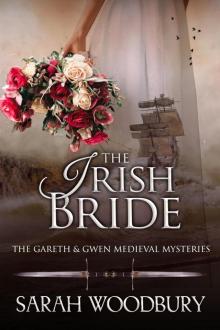 The Irish Bride
The Irish Bride Refuge in Time
Refuge in Time Masters of Time
Masters of Time Prince of Time (Book Two in the After Cilmeri series)
Prince of Time (Book Two in the After Cilmeri series)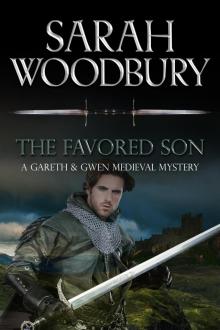 The Favored Son
The Favored Son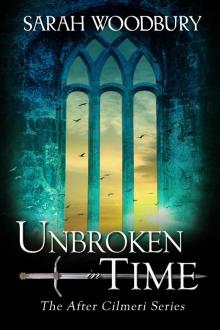 Unbroken in Time
Unbroken in Time![[The Lion of Wales 01.0] Cold My Heart Read online](http://i1.bookreadfree.com/i/03/22/the_lion_of_wales_01_0_cold_my_heart_preview.jpg) [The Lion of Wales 01.0] Cold My Heart
[The Lion of Wales 01.0] Cold My Heart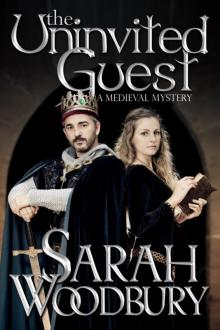 The Uninvited Guest
The Uninvited Guest The Pendragon's Blade (The Last Pendragon Saga Book 2)
The Pendragon's Blade (The Last Pendragon Saga Book 2)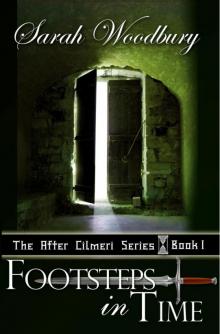 Footsteps in Time
Footsteps in Time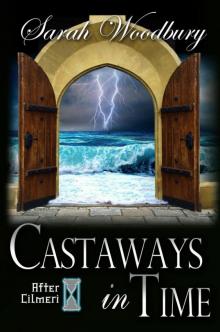 Castaways in Time (The After Cilmeri Series)
Castaways in Time (The After Cilmeri Series) Winds of Time
Winds of Time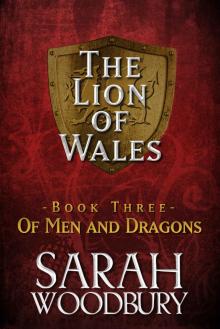 Of Men and Dragons (The Lion of Wales Book 3)
Of Men and Dragons (The Lion of Wales Book 3) Champions of Time
Champions of Time The Pendragon's Challenge (The Last Pendragon Saga Book 7)
The Pendragon's Challenge (The Last Pendragon Saga Book 7) Rise of the Pendragon (The Last Pendragon Saga Book 6)
Rise of the Pendragon (The Last Pendragon Saga Book 6) The Worthy Soldier
The Worthy Soldier The Last Pendragon (The Last Pendragon Saga Book 1)
The Last Pendragon (The Last Pendragon Saga Book 1) The Fallen Princess
The Fallen Princess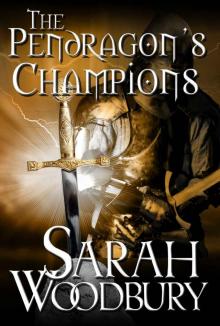 The Pendragon's Champions (The Last Pendragon Saga Book 5)
The Pendragon's Champions (The Last Pendragon Saga Book 5)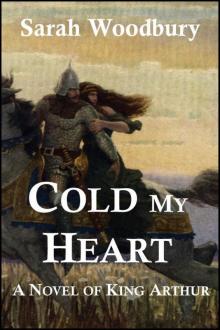 Cold My Heart: A Novel of King Arthur
Cold My Heart: A Novel of King Arthur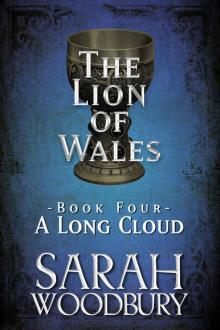 A Long Cloud (The Lion of Wales Book 4)
A Long Cloud (The Lion of Wales Book 4) Frost Against the Hilt (The Lion of Wales Book 5)
Frost Against the Hilt (The Lion of Wales Book 5) Daughter of Time: A Time Travel Romance
Daughter of Time: A Time Travel Romance Outpost in Time
Outpost in Time Shades of Time kobo
Shades of Time kobo The Pendragon's Quest (The Last Pendragon Saga Book 4)
The Pendragon's Quest (The Last Pendragon Saga Book 4) The Unexpected Ally
The Unexpected Ally Crossroads in Time (The After Cilmeri Series)
Crossroads in Time (The After Cilmeri Series)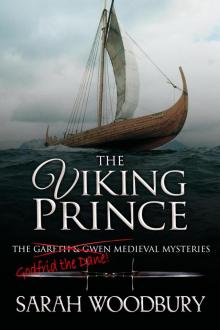 The Viking Prince
The Viking Prince The Renegade Merchant
The Renegade Merchant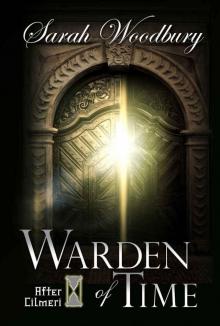 Warden of Time (The After Cilmeri Series Book 8)
Warden of Time (The After Cilmeri Series Book 8)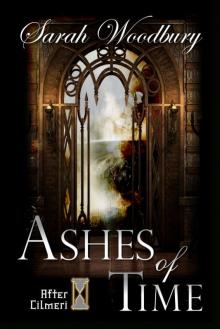 Ashes of Time (The After Cilmeri Series)
Ashes of Time (The After Cilmeri Series) Exiles in Time (The After Cilmeri Series)
Exiles in Time (The After Cilmeri Series)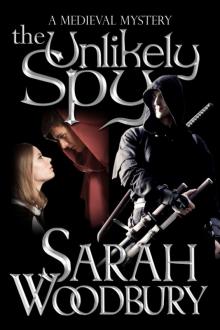 The Unlikely Spy
The Unlikely Spy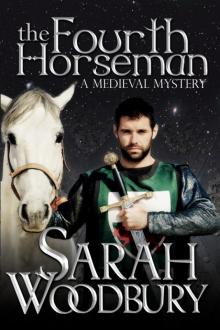 The Fourth Horseman
The Fourth Horseman The Oaken Door (The Lion of Wales Book 2)
The Oaken Door (The Lion of Wales Book 2) Song of the Pendragon (The Last Pendragon Saga Book 3)
Song of the Pendragon (The Last Pendragon Saga Book 3) Champions of Time (The After Cilmeri Series, #13)
Champions of Time (The After Cilmeri Series, #13) Guardians of Time
Guardians of Time The Bard's Daughter (A Gareth and Gwen Medieval Mystery)
The Bard's Daughter (A Gareth and Gwen Medieval Mystery)